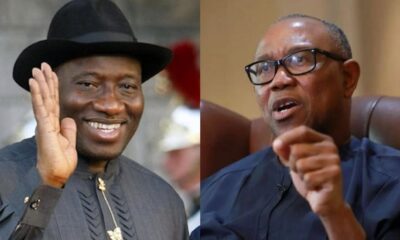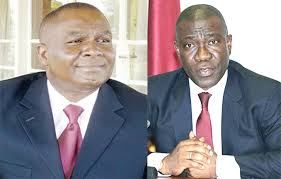Breaking News
Boko Haram Once Nominated Buhari for Peace Talks – Says Ex-President Jonathan

Former President Goodluck Jonathan has made a stunning revelation that the Boko Haram insurgents once nominated former President Muhammadu Buhari to represent them in peace talks with the Federal Government.
Jonathan disclosed this on Friday in Abuja at the public presentation of Scars: Nigeria’s Journey and the Boko Haram Conundrum, a book authored by the former Chief of Defence Staff, Gen. Lucky Irabor (retd.).
The ex-president explained that during his administration, several committees were set up to explore dialogue with the insurgents.
“One of the committees we set up then, the Boko Haram nominated Buhari to lead their team to negotiate with the government,” Jonathan said.
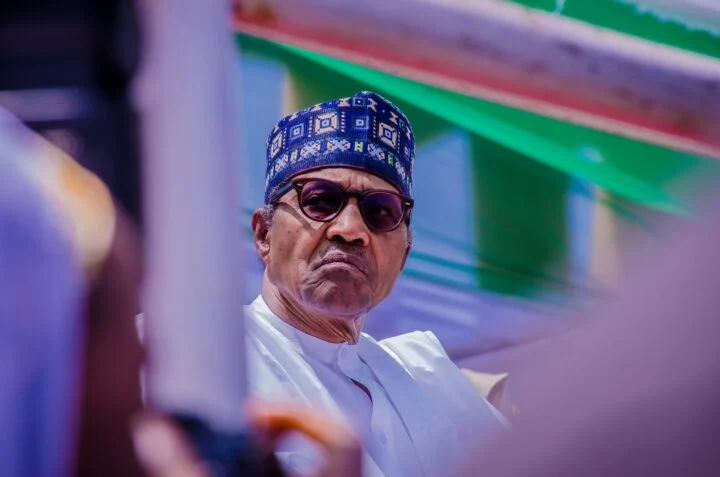
He added that based on that nomination, he believed Buhari’s eventual emergence as president in 2015 would make negotiations easier.
“So I was feeling that, oh, if they nominated Buhari to represent them and have a discussion with the government committee, then when Buhari took over, it could have been an easy way to negotiate with them and they would have handed over their guns. But it was still there till today,” he added.
Jonathan noted that the failure to wipe out Boko Haram even after Buhari became president showed the crisis was more complicated than many Nigerians believed.
“I thought that after I left, within a reasonable time, General Buhari would wipe them out. But even today, Boko Haram is still there. The issue of Boko Haram is far more complex than it is often presented,” he said.
The former president added that no single narrative could explain the insurgency.
“If you conduct research and interview many people, you will only get part of the story, but never the full story of Boko Haram. I was there. Boko Haram started in 2009 when I was vice president. I took over in 2010 and spent five years battling the insurgency until I left office,” he explained.
‘Carrot and stick approach needed’
Jonathan urged the current administration to consider a carrot-and-stick strategy in dealing with Boko Haram.
“Issue of carrots and the stick may be adopted, and yes, probably the needs are there, but if you look at the weapons they use, and you value the weapons, then you know that these are not hungry people. Sometimes they even have more ammunition than our soldiers,” he said.
He suggested that the sophisticated arms and ammunition Boko Haram uses were proof of external support.
“Where are these guns, sophisticated weapons coming from? And you begin to see that the external hands are also involved, especially when I was president,” Jonathan stressed.
The former president admitted that the 2014 abduction of over 200 Chibok schoolgirls remains a permanent scar on his administration.
“It is a scar I will die with. But perhaps later, more details may become known, and that too has to do with Boko Haram,” he said.
He expressed hope that someday Boko Haram leaders would be literate enough to document their accounts, just as key actors of the Nigerian Civil War did, to help Nigerians understand the sect’s true motives.
“I pray that one day, some of the Boko Haram leaders may be literate enough to document what they have done, so that people will truly understand what they wanted. It is similar to the story of the Nigerian Civil War,” he said.
Boko Haram not about hunger, Jonathan insists
Jonathan rejected claims that poverty alone fueled Boko Haram’s rise, insisting that his administration tried different approaches to tackle it.
“If it was only about hunger, because we tried different options, I don’t want to sound like I’m defending my government. That will be left for history when we document our books. But I believe we did our best: we set up different committees and tried various approaches during the five years I was in office,” he said.
Boko Haram, founded in the early 2000s in Borno State, became a major threat after its founder Mohammed Yusuf was killed in police custody in 2009.
The sect has since carried out bombings, abductions, and attacks on both military and civilian targets.
At the height of its violence in 2012, reports emerged that the group named Buhari among leaders they trusted to mediate. Buhari, however, rejected the offer, accusing the Jonathan administration of trying to rope him into the crisis for political reasons.

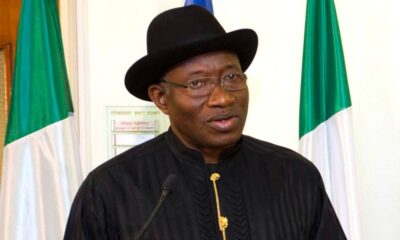

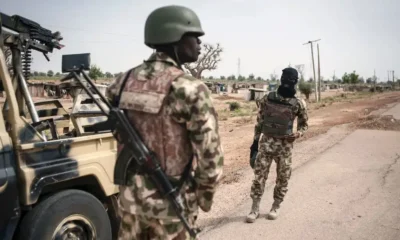

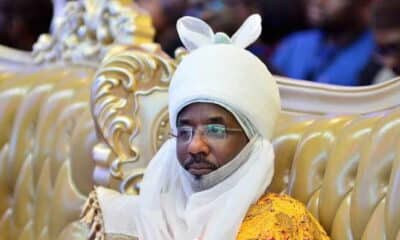

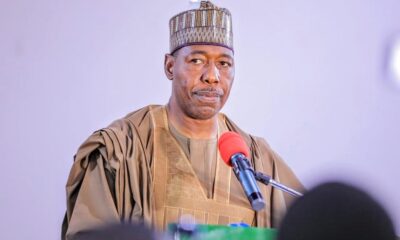

![Ex-President, Jonathan Meets With Tompolo [Details]](https://nigerianwaves.com/wp-content/uploads/2025/10/Goodluck-Jonathan-and-Tompolo-400x240.jpg)
![Ex-President, Jonathan Meets With Tompolo [Details]](https://nigerianwaves.com/wp-content/uploads/2025/10/Goodluck-Jonathan-and-Tompolo-80x80.jpg)
